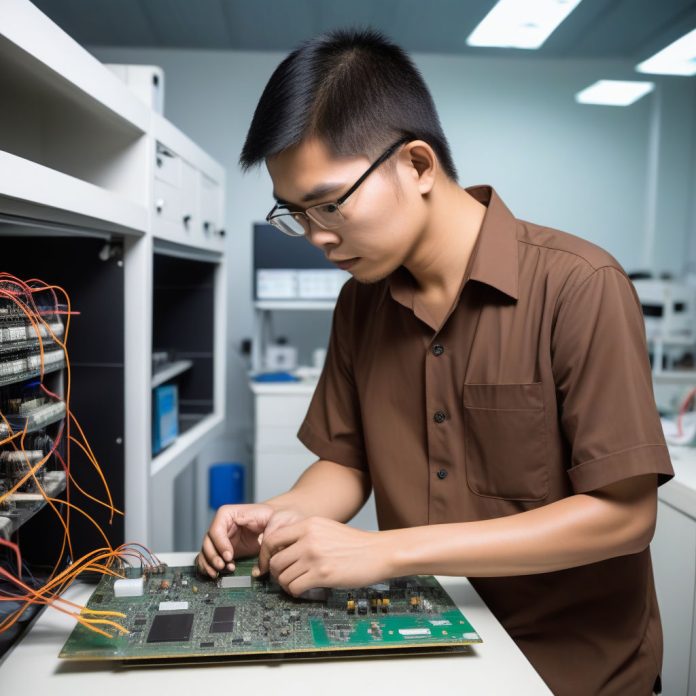
Latest Innovations in Electric Technology
In an era where technological advancements are at the forefront of societal progress, electric technology stands as a beacon of innovation. The continuous evolution in this field not only shapes the way we live but also contributes significantly to sustainability efforts. This article delves into the latest innovations in electric technology, exploring various aspects that are reshaping the landscape of our electrical future.
Advancements in Battery Technology
One of the primary catalysts for the electric revolution is the ongoing breakthroughs in battery technology. High-capacity lithium-ion batteries have become the backbone of portable electronic devices and electric vehicles (EVs). Additionally, the emergence of solid-state battery technology promises safer and more efficient energy storage solutions. Fast-charging innovations further enhance the convenience of electric devices, reducing downtime and improving user experience.
Electric Vehicles (EVs) Revolution
The automotive industry is undergoing a significant transformation with the surge in electric vehicle (EV) adoption. The continuous growth in electric car sales reflects a shift towards sustainable transportation. Simultaneously, the development of a robust EV infrastructure, including charging stations and battery-swapping technologies, addresses range anxiety concerns. Integrating artificial intelligence (AI) in EVs not only enhances autonomous capabilities but also contributes to improved energy efficiency.
Smart Grids and Energy Management
The integration of smart grids and advanced energy management systems is a pivotal aspect of the electric technology revolution. These innovations ensure efficient energy distribution, reducing waste and optimizing power consumption. Internet of Things (IoT) applications in energy management further enable real-time monitoring and control, contributing to the overall sustainability of power grids.
Renewable Energy Integration
Electric technology’s synergy with renewable energy sources is another driving force towards a greener future. Microgrid solutions allow communities to generate and manage their power sustainably, reducing reliance on traditional power grids. The seamless integration of electric technology and renewables contributes to a more resilient and eco-friendly power generation system.
Internet of Things (IoT) in Electric Technology
The Internet of Things (IoT) has permeated various aspects of our daily lives, and its impact on electric technology is no exception. IoT applications in electrical devices enable enhanced connectivity and control. From smart homes to industrial settings, the ability to monitor and manage electrical systems remotely enhances efficiency and convenience.
Artificial Intelligence (AI) in Electric Technology
Artificial intelligence (AI) plays a crucial role in optimising electric technology. AI-powered energy efficiency solutions analyse consumption patterns, providing insights for better resource management. Predictive maintenance in electrical systems ensures minimal downtime, improving the reliability of power infrastructure. The integration of AI in electric technology aligns with the broader goal of creating intelligent and sustainable power ecosystems.
Innovations in Electric Appliances
Beyond transportation and energy grids, innovations in electric appliances are shaping our everyday lives. Smart home appliances, equipped with IoT connectivity, offer increased automation and customisation. Energy-efficient innovations in devices such as refrigerators and air conditioners not only reduce environmental impact but also contribute to cost savings. User-friendly interfaces enhance the overall user experience, making electric appliances more accessible to a wider audience.
Challenges and Solutions
Despite the numerous benefits, the evolution of electric technology comes with its own set of challenges. Environmental concerns surrounding battery disposal and energy consumption remain critical issues. Additionally, the increasing reliance on interconnected systems raises cybersecurity concerns. Addressing these challenges requires a holistic approach, incorporating sustainable practices and robust security measures into the development and implementation of electric technology.
Future Trends in Electric Technology
Looking ahead, several trends are poised to shape the future of electric technology. Quantum computing applications hold the potential to revolutionise computational efficiency in the electric sector. The integration of biotechnology may lead to breakthroughs in energy storage and power generation. Sustainable innovation practices, driven by a collective commitment to environmental responsibility, will likely define the trajectory of electric technology in the years to come.
Conclusion
In conclusion, the latest innovations in electric technology are reshaping the way we interact with and harness electrical power. From advancements in battery technology to the widespread adoption of electric vehicles and the integration of AI and IoT, the trajectory is undeniably towards a more sustainable and efficient future. However, acknowledging and addressing challenges, along with embracing emerging trends, is crucial for realising the full potential of electric technology in fostering a greener and more technologically advanced world.
FAQs
- Are electric vehicles really more sustainable than traditional vehicles?
- Electric vehicles contribute significantly to sustainability by reducing reliance on fossil fuels and minimizing emissions. However, factors like manufacturing processes and energy sources impact their overall environmental impact.
- How does AI improve energy efficiency in electric systems?
- AI analyses data from electrical systems to identify patterns and optimise energy consumption. This leads to more efficient resource management and reduced energy waste.
















